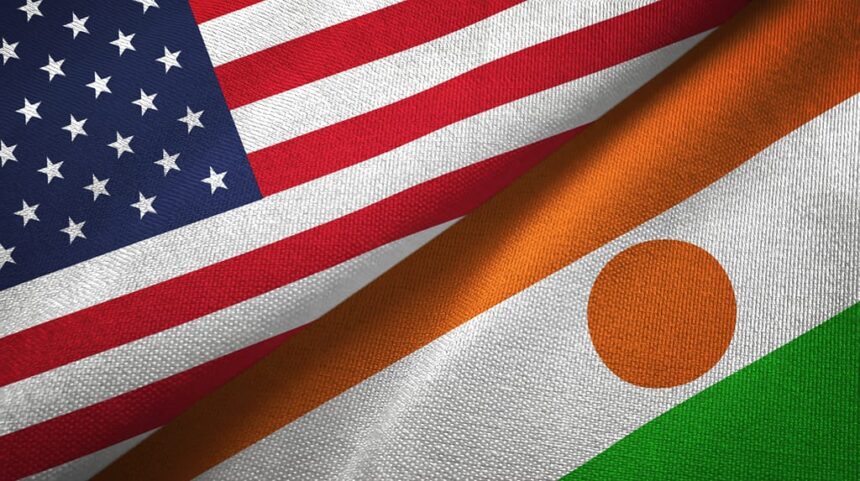Summary by Geopolist | Istanbul Center for Geopolitics:
The article discusses the strategic implications of the United States withdrawing its troops from Niger under pressure from the ruling junta. This withdrawal marks a setback for Washington, as Niger was a critical partner in combating Islamist terrorism in the Sahel region. The move reflects broader challenges for the U.S. in maintaining influence in West Africa amid growing Russian and Chinese presence. The junta’s actions, driven by sovereignty and nationalist sentiments, mirror anti-French sentiment and align with Russia’s opportunistic strategies in Africa, potentially leading to long-term negative impacts on regional security.
Read the full article below.
Emphasising a lack of sovereignty, Niger’s leaders pushed the United States to withdraw its troops from Niger on April 19th. While the United States had a strategic position in the Sahel region, particularly regarding their fight against Islamist terrorism, their forced departure represents a new blow for the West in the region, while Russia and China are gaining ground. What analysis can be made of the American situation in Niger and the Sahel region? Jeff Hawkins, former US diplomat and Associate Research Fellow at IRIS, provides some answers.
On April 19th, Washington announced the withdrawal of its military forces from Niger under pressure from the ruling junta. Why did Niger decide to freeze its relations with the United States? What role did the United States play there?
US-Nigerien relations are currently at a low ebb. This is not what the United States wanted. Until last year, the US Government saw Niger as an essential partner in the region, a democratic ally fully engaged in the fight against Islamist extremism. The July 2023 coup in Niamey, which brought to power the Council for the Safeguard of the Homeland (CNSP), changed everything. Shortly after the coup, Washington was obliged under US law to suspend most American aid to Niger. This included $200 million in bilateral assistance and planning for a $302 million transportation project funded by the US Millennium Challenge Account. The United States also suspended military operations in the country – most notably those conducted out of Air Base 201 in Agadez – although it did not withdraw the US presence of over 1000 personnel. In March, an increasingly hostile CNSP withdrew from the Status-of-Forces Agreement governing the US military presence in Niger. Shortly afterwards, a high-level American delegation travelled to Niamey, hoping to help put Niger back on a democratic path and seeking a way to resume military cooperation. The Nigeriens rebuffed this effort. Further negotiations in Washington also failed to sway the CNSP. The coup may have made it impossible for the United States to continue with business as usual, but that does not mean that Washington sought rupture. Rather, it was the Nigeriens who torpedoed the relationship.
Why did Niamey do this? The Nigerien leadership has couched its decision in terms of sovereignty. A patriotic new government, the CNSP narrative went, sought to overturn an “illegal” American presence “taking into account the interests and aspirations of its people”. This follows on the heels of a similarly abrupt dismissal of the French military and diplomatic presence in Niger last year. Both actions can be seen as efforts to attain legitimacy for a decidedly non-legitimate, non-democratic military government. In many parts of francophone Africa, anti-French measures are always a crowd pleaser. Kicking the French out was certain to generate a certain degree of popular support for the junta. Although the American presence in Niger comes with much less baggage than the French one, Nigerien actions towards the United States can be seen in the same light. Given the inevitable concerns about democracy and human rights in both Paris and Washington, and the suspension of aid, it wasn’t a tough call for the CNSP. As we’ll see, the Russians have provided a ready alternative. The longer-term impacts of the decision on Niger, particularly as concerns the fight against terrorism, will almost certainly be negative.
Until the current freeze in relations, the United States was an important player in Niger. The US military presence in Agadez and Niamey was one of the largest in Sub-Saharan Africa, focused on al-Qaida and ISIS targets. The country was an important recipient of American assistance, and Niger was a target country for the US Millennium Challenge Account, which provides large-scale, long-term assistance to states with particularly good records of democratic governance. US ties with former Nigerien President Mohamed Bazoum, overthrown in the coup, were cordial.
What can we learn from the US strategy in other Sahel countries, particularly in Chad? What are the US interests in the region?
The United States seeks a relationship with the sub-region that is both wide and deep. The military relationship, until recently very much on display in Niger, is an important component. A primary American concern across the continent is the Islamist terrorist threat, particularly in the Sahel and the Horn of Africa. The US Africa Command conducts military operations in the region but also focuses on building partnerships with African militaries. As AFRICOM Commander General Michael Langley explained to Congress last month, US military engagement has grown in importance as French, European, and UN presences have waned. The United States is a significant investment and trading partner for countries throughout the region, and the Biden Administration made increasing these ties a priority at the 2022 US-Africa Leaders’ Summit. US investments in natural resource extraction – with US oil and gas majors operating in places like Nigeria and Chad – are substantial. US assistance seeks to reinforce democratic governance, support investments in social services like health and education, and address humanitarian crises. Unfortunately, US relations with Chad may be following a trajectory somewhat like that in neighbouring Niger. This month, the Chadians asked the United States to withdraw a small military presence at the airport outside N’Djamena. A US State Department spokesman noted that American officials are “in ongoing conversations with Chadian officials about the future of our security partnership”.
Is the United States losing influence compared to Russia in the region?
A catastrophic decline in Western influence in Africa is certainly what the Russians want, and the Russian bear, of course, has its paw-prints all over the reversal of western fortunes in Niger. Russia’s presence in Africa, above all in the defence sphere, is long-standing. The Russian Federation is the single largest supplier of arms on the continent, well ahead of both France and the United States. As tensions have mounted between the West and Russia over Ukraine, the Russians have played an increasingly disruptive role, seeking to overturn long-standing security ties between key NATO countries and their African partners. The Russians have effectively used their own bilateral military assistance and Kremlin-associated mercenary outfits like the Wagner Group (now the Russian African Corps) to offer an alternative to Western engagement. As the Biden Administration US Strategy Toward Sub-Saharan Africa points out, “Russia views the region as a permissive environment for parastatals and private military companies, often fomenting instability for strategic and financial benefit”. We can also assume that the Russian security services are doing what they can behind the scenes to stir up anti-French and anti-American sentiment amongst African audiences. At the end of the day, authoritarian regimes like that of the CNSP are quite happy to forgo French or American demands for democratic reform and respect for rule of law and sign up for conditions-free Russian assistance instead. Russian forces from the Africa Corps arrived in Niamey this month as a part of a new defence arrangement.
Looking out longer term, though, it remains to be seen just how much ground the Russians will gain, and keep, in Africa. Moscow has been very successful thus far in places like Mali and Niger. But disrupting US-Niger relations and sending some Russian mercenaries to Niamey is not the same as establishing deep, long-lasting ties. Russia is a secondary economic player on the continent, for example, with Russian trade flows to Africa (around $18 billion in 2021) dwarfed by Africa-China trade ($282 billion). The real long-term threat to American interests on the African continent is China, not Russia. Given China’s intense diplomatic engagement with the region, its vast economic ties with Africa, and its growing interest in security across the continent, the true threat to American interests comes from Beijing not Moscow.
By: Jeff Hawkins
Source: French Institute for International and Strategic Affairs (IRIS)







